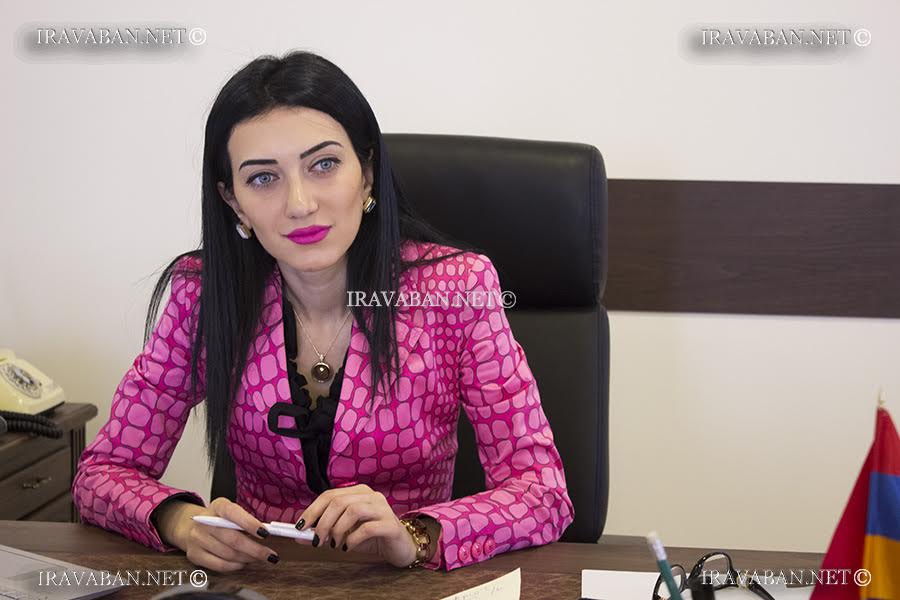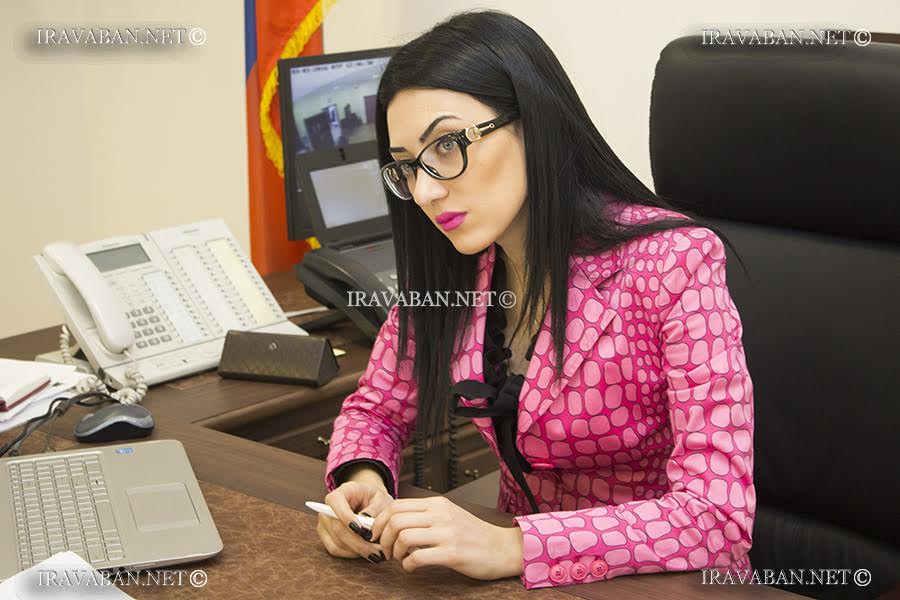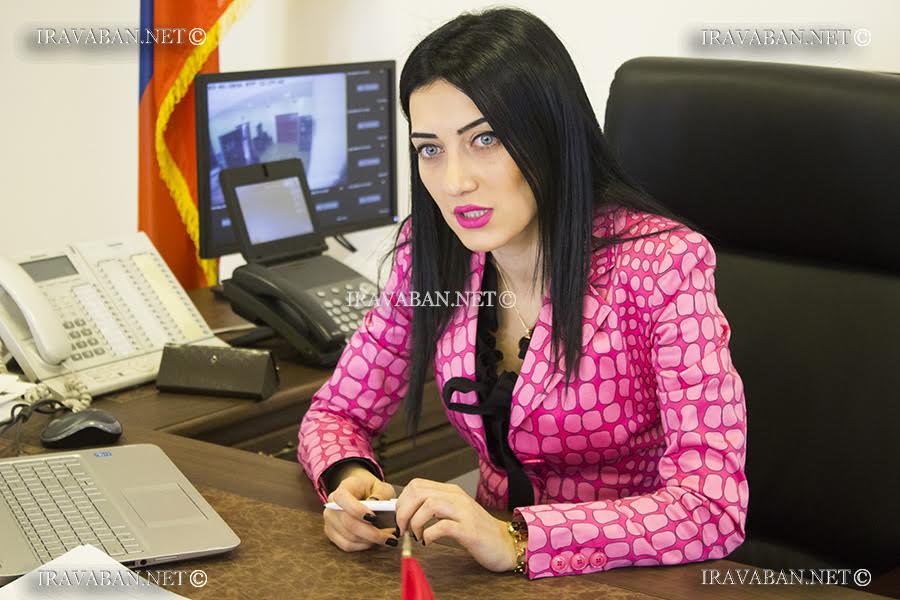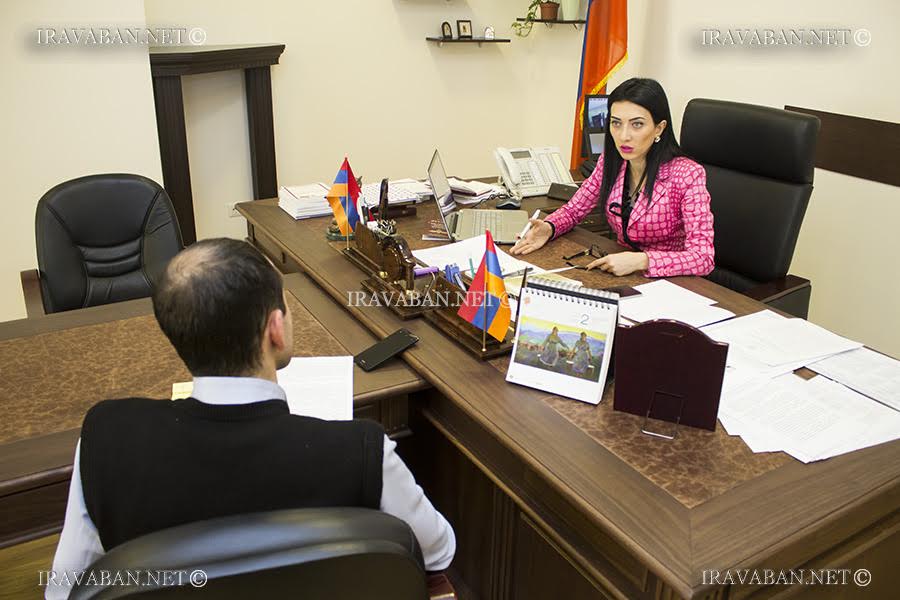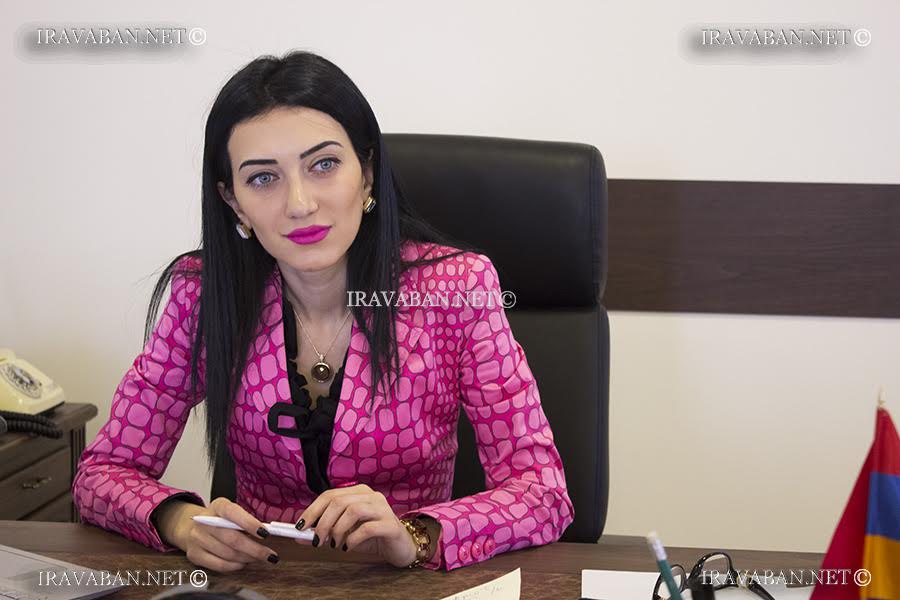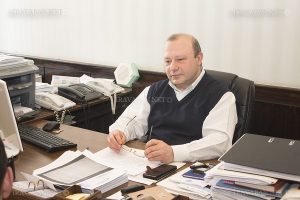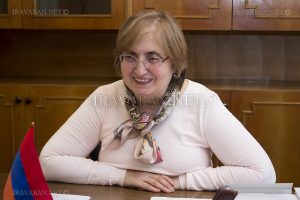She had only one assistant at the NA, but currently she leads a staff of more than 100 lawyers. In addition the Ministry regulates and draft hundreds of projects; and she is the youngest in the Government and among the former Ministers of Justice of the RA.
Arpine Hovhannisyan assumed the post of the Minister of Justice in September 2015. What the young minister is going to change in the System? What is the most important thing that we should know about her? What is her vision of fight against corruption? What solutions would she find to ease the citizens’ troubles? And what are the most important qualities in men for her?
Professional interview mixed with personal elements. Arpine Hovhannisyan’s perceptions of cooperation with civil society, activities of institutes and legal education.
You can find answers to these and other questions in the second interview of “Prominent Armenian Lawyers” special project.
Prominent Armenian Lawyers” special project aims at presenting to the readers the Armenian lawyers who had exclusive contribution, irrespective of their place of residence. By the rules of the project the first three interlocutors choose the next heroes.
Dear Minister, you assumed your post on 4 September, 2015. What have you done during these 6 months and what is left?
I have a lot of work to do. However, I have already managed to submit the solutions to some problems connected with several important initiatives; legislative initiatives, Code of Administrative Offences, some amendments in the Criminal Code, as well as in a number of government decisions. Certain work has already been carried out after the constitutional referendum, which in fact indicate major legislative changes and the Ministry of Justice is responsible and the main bearer of the burden. A number of important agreements with international organizations were obtained in this perspective, the results of which you will see in future.
Which legislative initiatives will you suggest in the up-coming period?
I can proclaim this year the year of major and structural reforms in legislative terms that derives from Constitution, Electoral Code. Thus, the Ministry of Justice is responsible for 12 basic legal acts and about 100 mentioned in the President’s Decree. The legislative initiatives vary. They are aimed at solution of systematic problems. There are great many changes and I can list them for hours. However I would like to speak about them only when they are presented to the public.
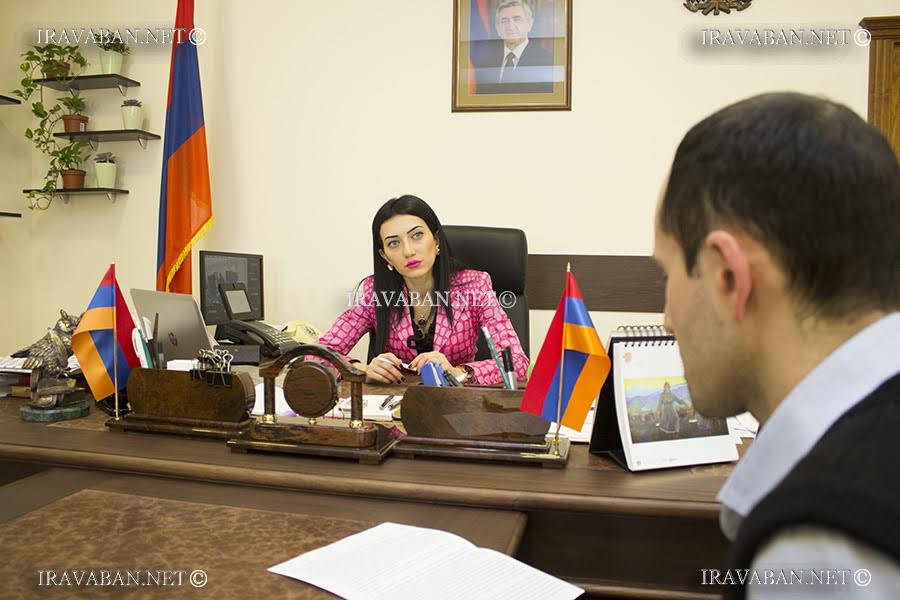 The Draft NGO Law is one of those exclusive legal acts that has been approved by the civil society. When shall we have it adopted?
The Draft NGO Law is one of those exclusive legal acts that has been approved by the civil society. When shall we have it adopted?
Yes, the long discussed draft on NGOs is one of our most important steps, which was finally presented to the RA Government and the NA. This draft may not satisfy everybody but we did our best.
Is it foreseen to have the Draft NGO Law adopted at spring session?
I would not specify any date as the NA has its agenda and make a schedule in accordance with its workload. However, I would note that the RA NA Standing Committee on Protection of Human Rights and Public Affairs should include it in the four-day’s session agenda because it had been included in the session agenda in the first stage. This draft will become the topic of discussion in the NA and I hope will be adopted until summer.
The RA Government is criticized and your fight against corruption is considered artificial. Of course, you just mentioned that various drafts are developed and responsibility for the officials’ declarations is being planned. But either I or the citizens who read this interview are not interested in those solutions. Let’s talk in two directions. First corruption in higher levels: monopolies, abuses, corruption schemes. What does the Anti-Corruption Council do?
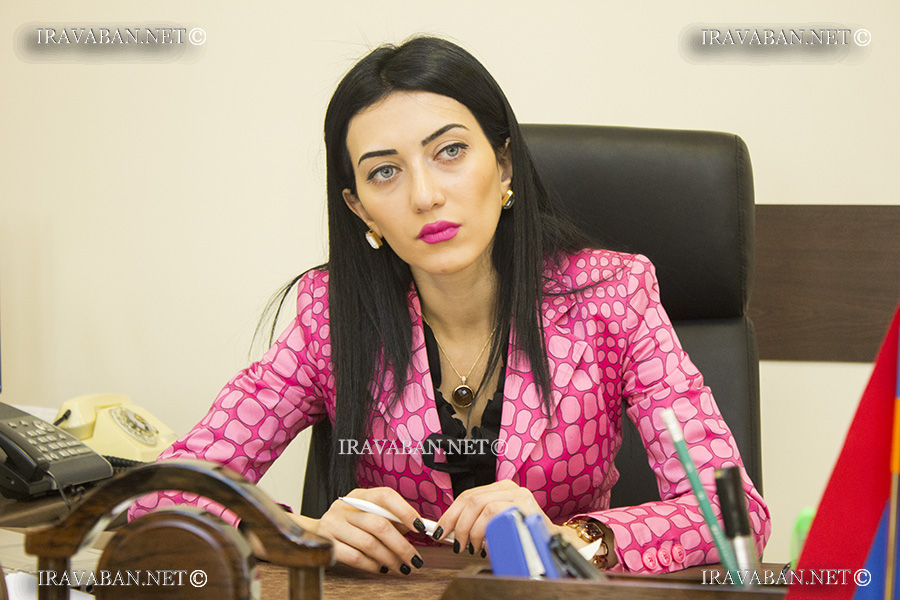 I want to make a very important emphasis by using this platform, the interview, as well as your audience that consists of lawyers and knowing people. There should be clear separation between what you expect from definite body and what its powers are. The Anti-Corruption Council bringing together state agencies, international organizations and NGOs set a goal to find those issues that arise corruption risks with the help of legislative amendments and various other mechanisms, explore and eliminate them. It is a very important matter that we do not say we know the solution at the present moment and shall realize it. Thus, a lot of people, my colleagues do not approach that question seriously and mention that government received funds and the council spent them for some purposes and trainings and did not have any results. I would like to emphasize that the Council is neither a punitive body nor it has the authorities of law enforcement system block. The main issue of this body is to understand with the help of the representatives of all offices where the problems that should be eliminated are. To begin with, the Council has functioned for only six months and the fund that was spoken about was obtained on the basis of an agreement signed a month ago. The matter is that there are schemes approved by international experts in the world. If we do not trust ourselves and there is such an environment then we should trust those schemes that have had positive results by the use of different people during the time. The money will be directed to fund the international experts so that they would support us in solving our problems. The Anti-Corruption Council should solve a global issue that is point out the problems in our society and regulate them.
I want to make a very important emphasis by using this platform, the interview, as well as your audience that consists of lawyers and knowing people. There should be clear separation between what you expect from definite body and what its powers are. The Anti-Corruption Council bringing together state agencies, international organizations and NGOs set a goal to find those issues that arise corruption risks with the help of legislative amendments and various other mechanisms, explore and eliminate them. It is a very important matter that we do not say we know the solution at the present moment and shall realize it. Thus, a lot of people, my colleagues do not approach that question seriously and mention that government received funds and the council spent them for some purposes and trainings and did not have any results. I would like to emphasize that the Council is neither a punitive body nor it has the authorities of law enforcement system block. The main issue of this body is to understand with the help of the representatives of all offices where the problems that should be eliminated are. To begin with, the Council has functioned for only six months and the fund that was spoken about was obtained on the basis of an agreement signed a month ago. The matter is that there are schemes approved by international experts in the world. If we do not trust ourselves and there is such an environment then we should trust those schemes that have had positive results by the use of different people during the time. The money will be directed to fund the international experts so that they would support us in solving our problems. The Anti-Corruption Council should solve a global issue that is point out the problems in our society and regulate them.
The second direction is corruption in higher levels. I am sure that ordinary citizens are interested in that question more. What steps will be taken in the public service sector?
As a citizen I should say that in terms of public perception, there are stereotype opinions that we have and unless we have not overcome them we cannot solve our problems. I can say, and I am sure you will agree with me that the things are not the same as 2 or 8 years ago. To say that there is no progress would be extremely subjective, but saying that we do not have anything to do would be false. As far as we have one or two or even three cases, we are responsible both for omissions and perceptions. So, many steps should be taken and it is not accidental that Anti-Corruption Council, the strategy approved by the RA Government and the implementation plan has selected specific target areas. Here, various steps are taken and will continue to be implemented. I want to say that we would implement a very important initiative but I will not open brackets. Just note, it refers to the fact that different relevant bodies and institutions of the Ministry of Justice offer many services and during that time many complains may arise. Our task is to save the citizens time and resources and make sure they receive civilized services. This refers to the civil acts registration and Notary offices, the Translation Center, state register, etc. Here, we have to take concrete steps that will enable to completely eliminate existing and potential risks.
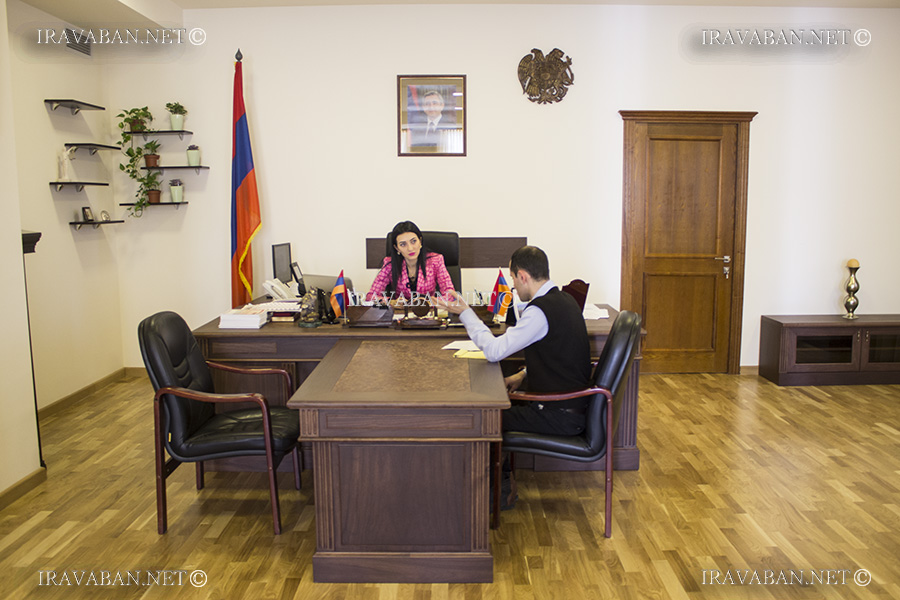 During your tenure, a cooperation agenda with civil society was also established. How do you see future cooperation with civil society organizations?
During your tenure, a cooperation agenda with civil society was also established. How do you see future cooperation with civil society organizations?
I want to say that the Draft NGO Law and cooperation with NGO sector was not just words. Our objective is to make the Councils self-regulating and self-organizing. My aim is to bring the cooperation to such a level that they could point the problems and the necessity for their solution. As Schopenhauer said the drug does not reach its 0bjective because the dose is too large, in the same way the criticism does not reach its goal if it crosses the limits of justice. Criticism is responsibility. If someone has to take such a responsibility then he should be very careful as the permanent baseless and unfair criticism may lead to the situation when it would no longer draw attention.
Every week I analyze and present the judges’ declarations to the readers. I should say we have quite rich judges. Why do the taxpayers pay for the judicial mistakes by the ECHR verdicts and there is no punishment for judges?
Various lawyers have long discussed this problem. The problem is that when we speak about the damage caused to the state by one’s fault, it should be proved judicially. In this regard, under the civil law, if the judge’s guilt has been proved, even in this case we have the right of recourse. As for ECHR, I can say that almost in all countries the regulation is the same as in ours. Here, the government should be responsible for the mistakes of its own state authority, and the mistake does not mean the judge made it in corrupt way. Very often, we deal with wrong use of the law. I would examine this question from different dimension and as well as the decisions in the overall combonation and point out the mistakes for which we have to pay compensation.
As we know, none of our lawyers was published in prestigious journal, what steps should be undertaken to bring our scientific potential to the international platform? For example the “Lawfulness” magazine of the Prosecutor’s Office is not known in the international platform. Besides, we do not have scientific judicial potential, very often people become PhD for exemption from military service. If we have serious scientists that act in the international platform, please name three of them who have been published in the prestigious journals in recent years.
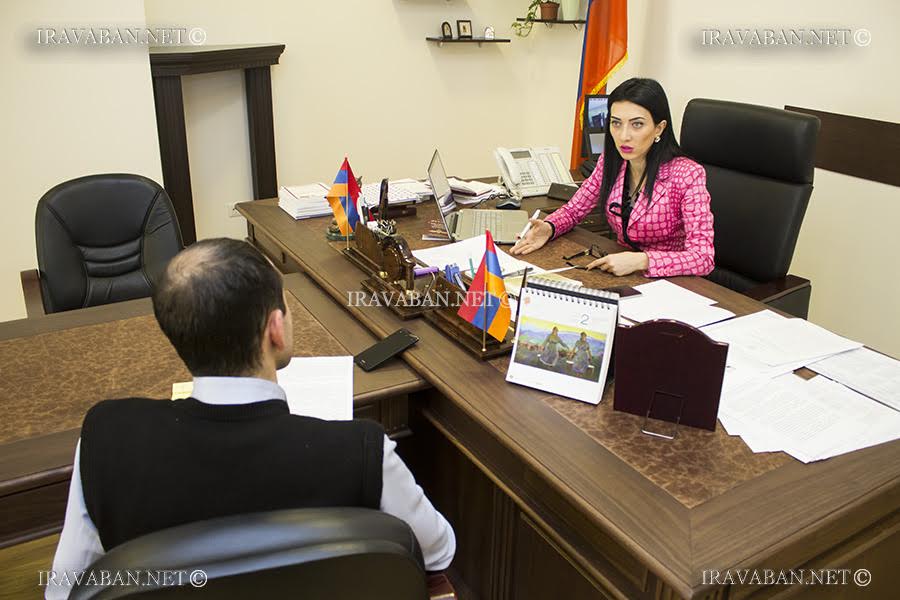 We have very good lawyers that have significant activities in the terms of their country, as well as lawyers that act in the international platform but there are a few of them. How the scientific mind became famous is a matter of time not because we do not have that potential. We have a problem of making that potential distinguishable. Teaching in the YSU, I can say that we have many students that have a lot of significant achievements by studying in different Universities of the world. One of my classmates teaches at the Stanford University in the US, and of course is published as he is famous but I do not want to tell his name as mentioning one I will forget the others. Having the problem of recognition of scientific mind is another matter.
We have very good lawyers that have significant activities in the terms of their country, as well as lawyers that act in the international platform but there are a few of them. How the scientific mind became famous is a matter of time not because we do not have that potential. We have a problem of making that potential distinguishable. Teaching in the YSU, I can say that we have many students that have a lot of significant achievements by studying in different Universities of the world. One of my classmates teaches at the Stanford University in the US, and of course is published as he is famous but I do not want to tell his name as mentioning one I will forget the others. Having the problem of recognition of scientific mind is another matter.
Our higher education of Jurisprudence is more academic, but for example in the USA it is exploratory, the lecturer is paid for doing researches and then delivering lectures. This exists in Armenian new universities, for instance in American University of Armenia and so on. How shall we change our educational system so that the lecturers’ staff feels good and conduct researches?
I would not say that the university approach is wrong. I can say that in the YSU faculty of Law, similar experience is going to be introduced in Master’s Program. First, we have to start from the beginning, when students enter the university after school whether exploratory lectures can be productive for a first-year student. In addition, whether they need basic knowledge or not. I support the idea that first of all the basic knowledge should be given during certain years then then exploratory knowledge that is much more important taking into account the student’s preferences.
It is not a secret that Hrayr Tovmasyan, the Minister of Justice was in the Constitutional Committee, later, when the minister was changed, the Committee staff was also changed, and the chief of MP staff was appointed instead of the minister. Yes, there were new ministers but Hrayr Tovmasyan still remained in the Committee. We should say that a person is involved in these processes and not the institute.
I shall not comment in connected with the replacement. In the second case the explanation was clear, at least at this stage, when the Ministry of Justice is responsible for the vast majority of those legal acts, in this case it would not be logical for the Minister of Justice to be in that Committee and at the same time be reporter, responsible and performer. The global approach is the following; yes, I think institutionalization is very important as it is one of the factors for the development of the country, when institutions are being highlighted not the individuals, although the person’s factor cannot be ignored under any circumstances.
This interview could not be without any personal elements. I remember our last conversation when you were an MP. Then we spoke about literature, cinema, etc. I will not give the same questions but please answer my questions honestly. What is the most important thing that people should know about you?
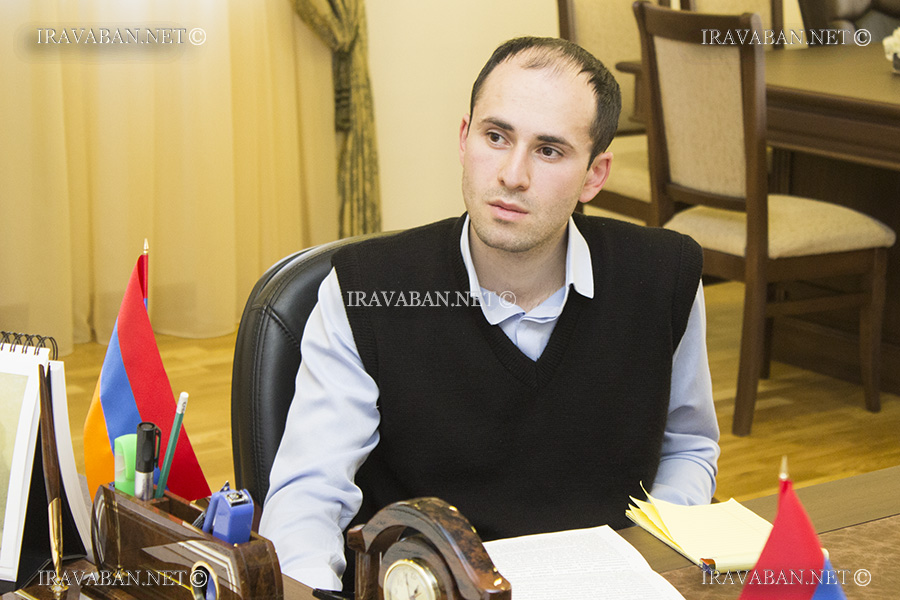 An interesting question. The way I express my thoughts is very sincere and strict but I say what I mean and there is nothing else under my words.
An interesting question. The way I express my thoughts is very sincere and strict but I say what I mean and there is nothing else under my words.
Charles Lamb said that lawyers were children, too. I wonder whether you have chosen your profession since your childhood. How did you choose the profession of lawyer?
I must agree with that idea as now I am trying to remember a special episode connected with my choice but I cannot. I have not had any other idea, from the beginning I wanted to have the profession of lawyer. Of course, I cannot exclude my mother’s factor as she wanted me to choose that profession.
What is your philosophy of life? For a better life?
Do what you love, be honest with people, not to be ashamed to look in people’s eyes, to move forward without harming anyone.
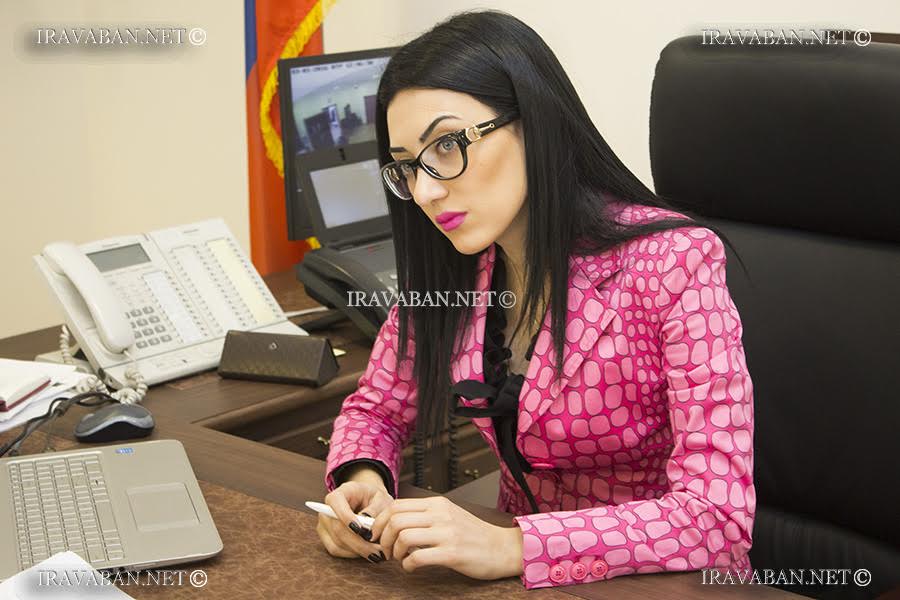 What qualities are most important to men?
What qualities are most important to men?
Generosity, not inhibited, self-sufficiency, humorous are not very outstanding features: Honesty is the most important feature, I have told this on many occasions, especially for men. Our society is a society of men, it is patriarchal and the man is given a certain role and our society has defined certain features that the man should have, whether or not they are stereotypes. Very often, due to the transformations taking place in the society, it seems that the men’s role is going to change and those qualities began to disappear, in fact people speak about something they do not have and require something form others.
Please note your ideal of international lawyer. Is there such a person?
I have never had ideals in my life. In this case there are not also such ideals. There are people whose opinions are very important to me. They can be either from ancient times or literary heroes like Attikus Finch, the main hero of “To kill the Mockingbird”, as well as real people. I only want to mention that the most admirable for me were lawyers that were not afraid of becoming a target of criticism, and took the heavy burden of responsibility believing that their work will bring positive changes in people’s lives and thinking.
If you remember, during our last interview we spoke about the “no”-s of your personal life, especially in the fact of being “not married”. You promised to solve that “no” in 2015.
I have not promised, I said ‘I would try’. You can never set definite rules in your personal life and indicate dates if you do not refer to your personal life as to business. Thus, I think there should be logical development in this dimension and you’ll see its results.
It is already traditional for the “Prominent Armenian Lawyers” special project when the interlocutor should choose the next heroes for the interview. In your opinion, who could be our next interlocutor?
David Harutyunyan.
Interview by Gevorg Tosunyan
Photos by Alexander Sargsyan
Author of the Idea Karen Zadoyan
Also read:

